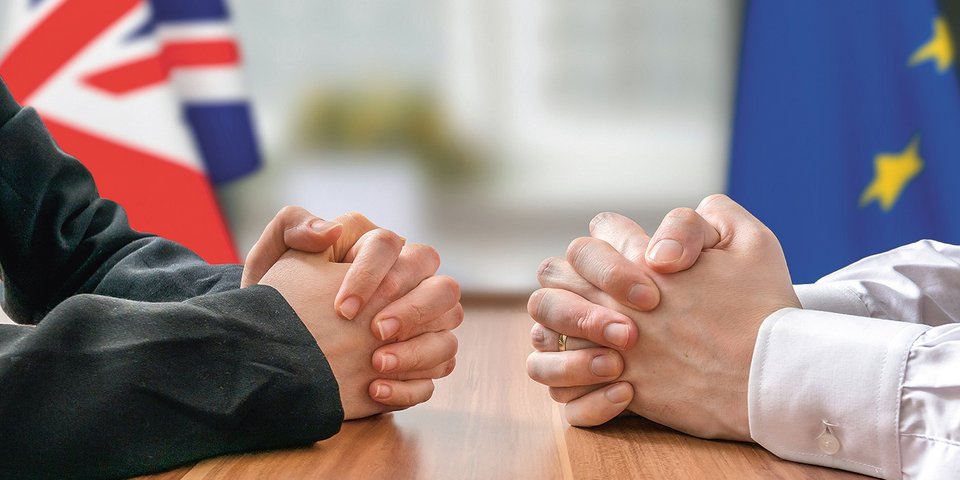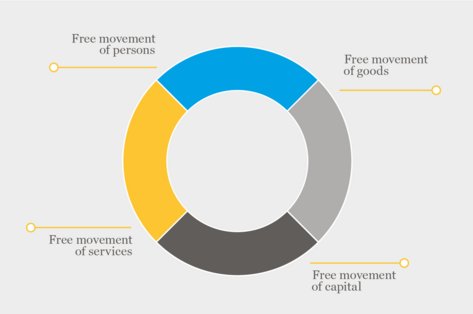 ©vchalup - stock.adobe.com
©vchalup - stock.adobe.com
The preferred way – a close partnership
ed* No. 02/2018 – Chapter 6
The European Council expressed in its guidelines on the future EU-UK relationship, published on 23 March 2018, that it wants a close partnership between the EU and the UK. As such, the EU has emphasised that it is still interested in deeper cooperation with the UK after Brexit, but that the UK cannot enjoy the same rights as other EU Member States.
The UK also wants a particularly deep and close partnership that goes beyond a conventional free trade agreement. However, some areas are to be restricted, such as the free movement of workers.1 The EU has rejected this ‘cherry picking’. The four fundamental freedoms of the EU are indivisible. This means that selectively participating in the internal market in specific areas, such as the free movement of goods, but not of persons, is impossible.
The European Council believes that a future partnership should include comprehensive rules on the free movement of persons, including related areas such as the coordination of social security.
Uniform rules on the coordination of social security systems with the UK at European level would have the advantage that no bilateral agreements would have to be concluded between the UK and the EU Member States. Concluding these agreements would require a significant amount of time and would be particularly taxing on social security systems.


Solutions must also be found for the trade in medicinal products, medical devices and products that are important for the safety and health of workers. The same applies to the mutual recognition of authorisations for medicinal products. In the absence of suitable regulations, it may be difficult to authorise or market products. Any agreements should take into account the need to maintain current levels of protection and safety.
A close partnership would also have a positive impact on occupational safety and health. The prevention work done by Germany’s statutory accident insurance is based on the European OSH regulations. After the UK withdraws from the EU, it will no longer be bound by these common OSH regulations unless there are special arrangements in this area, for example as part of a free trade agreement or partnership agreement. If an agreement cannot be reached, it could result in different levels of OSH which could have an effect on posted workers. Germany’s statutory social insurance has already highlighted this issue during discussions on other free trade agreements.
Another option would be for the United Kingdom to join the European Economic Area (EEA) based on the model of the three EFTA countries of Norway, Iceland and Liechtenstein. This would mean that all four fundamental freedoms would apply, as well as the EU Regulations on the coordination of social security systems.

